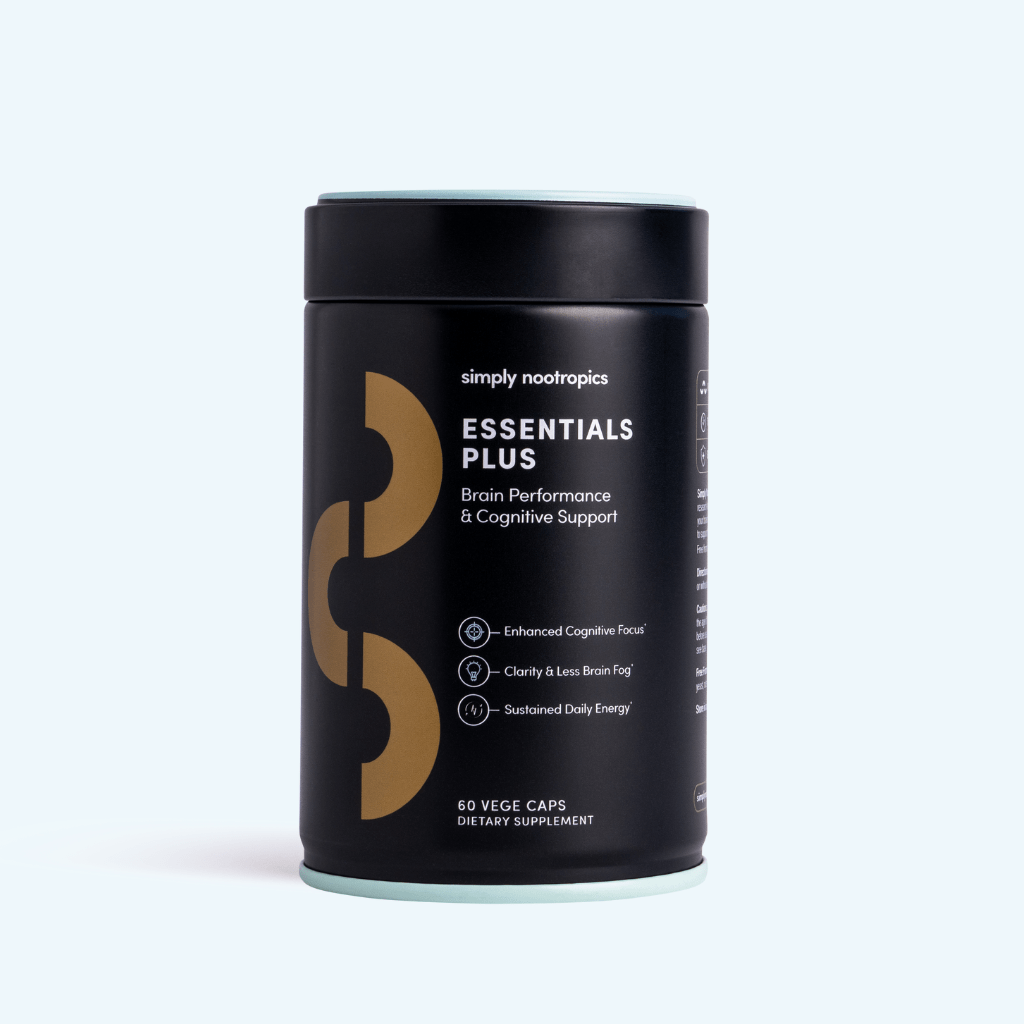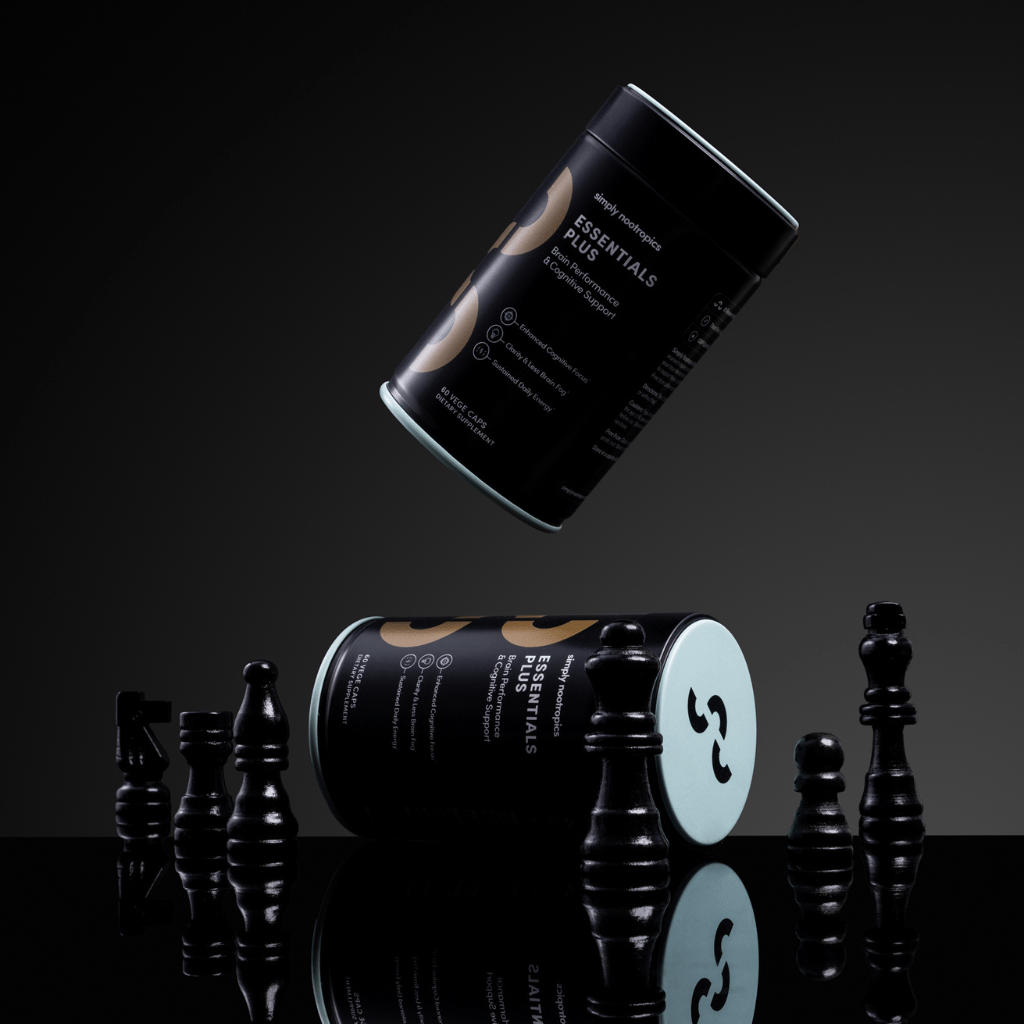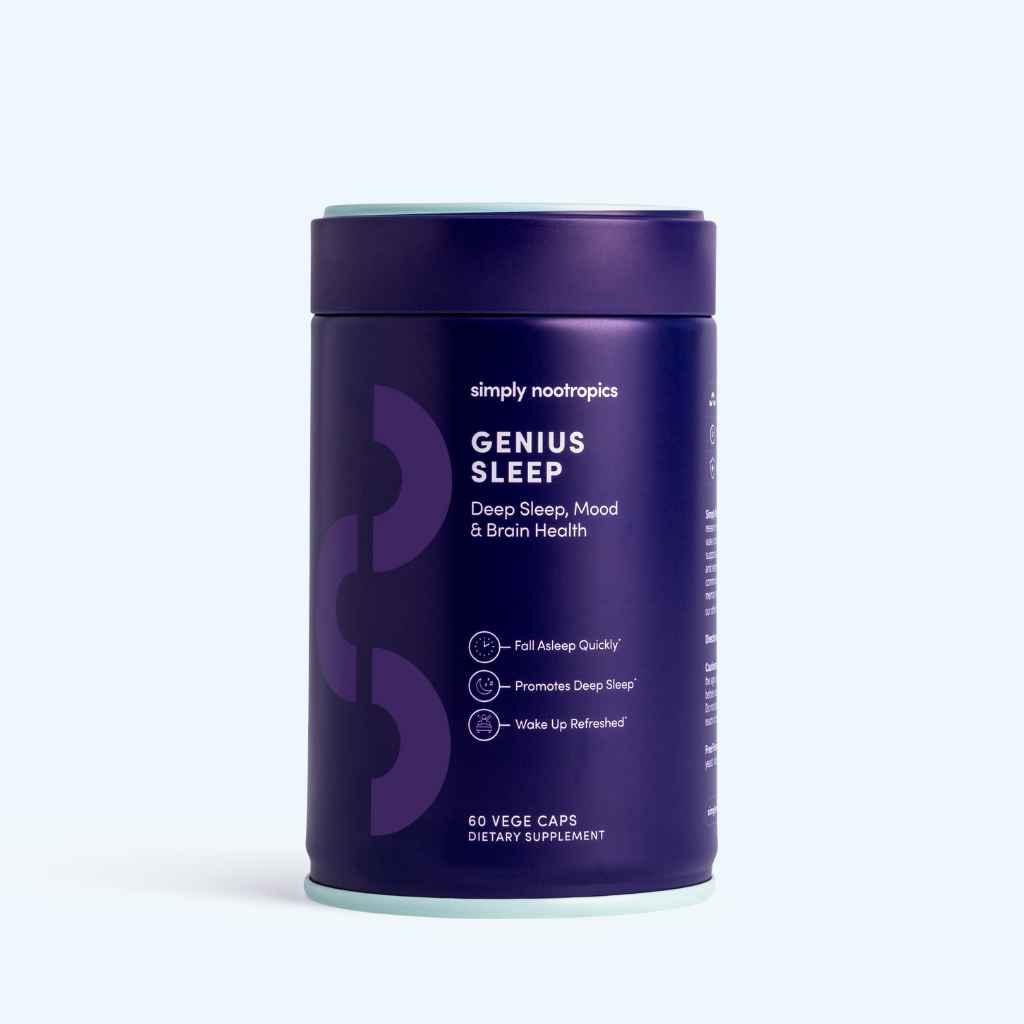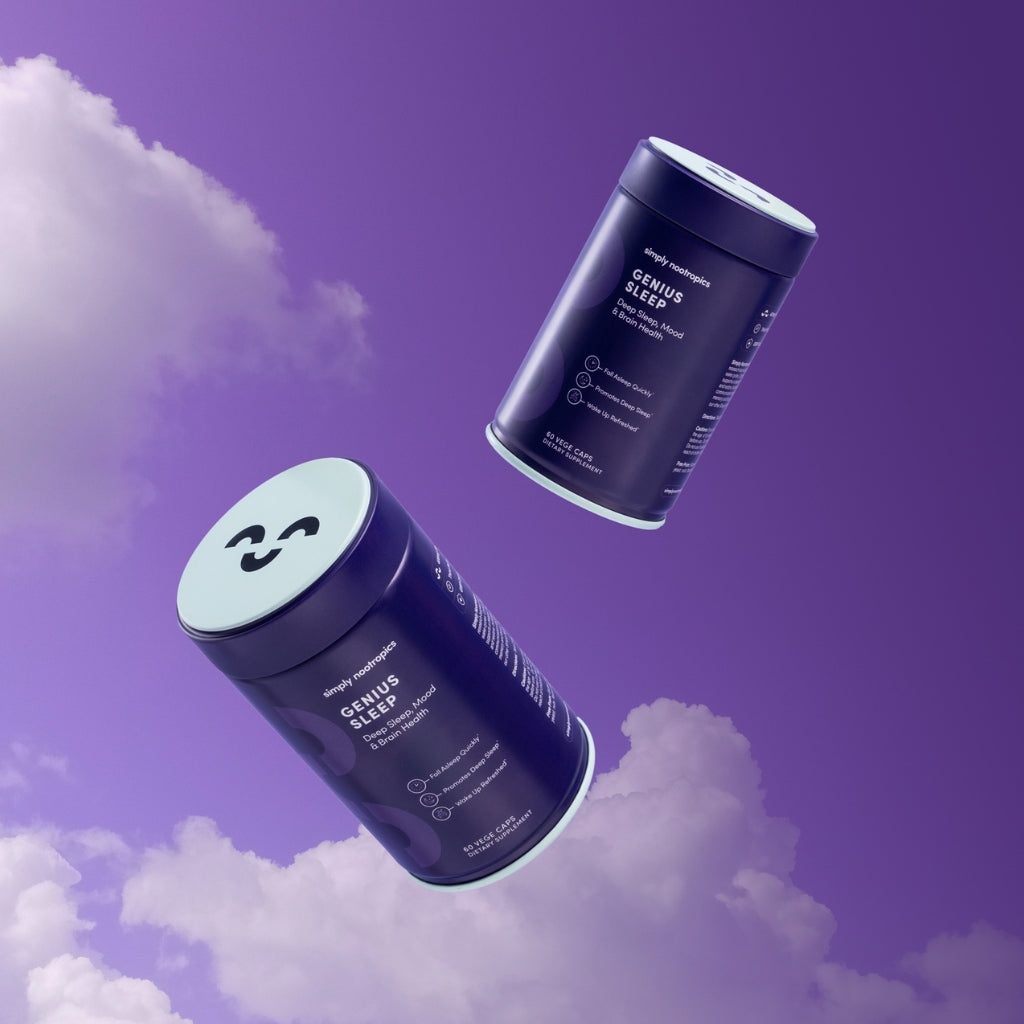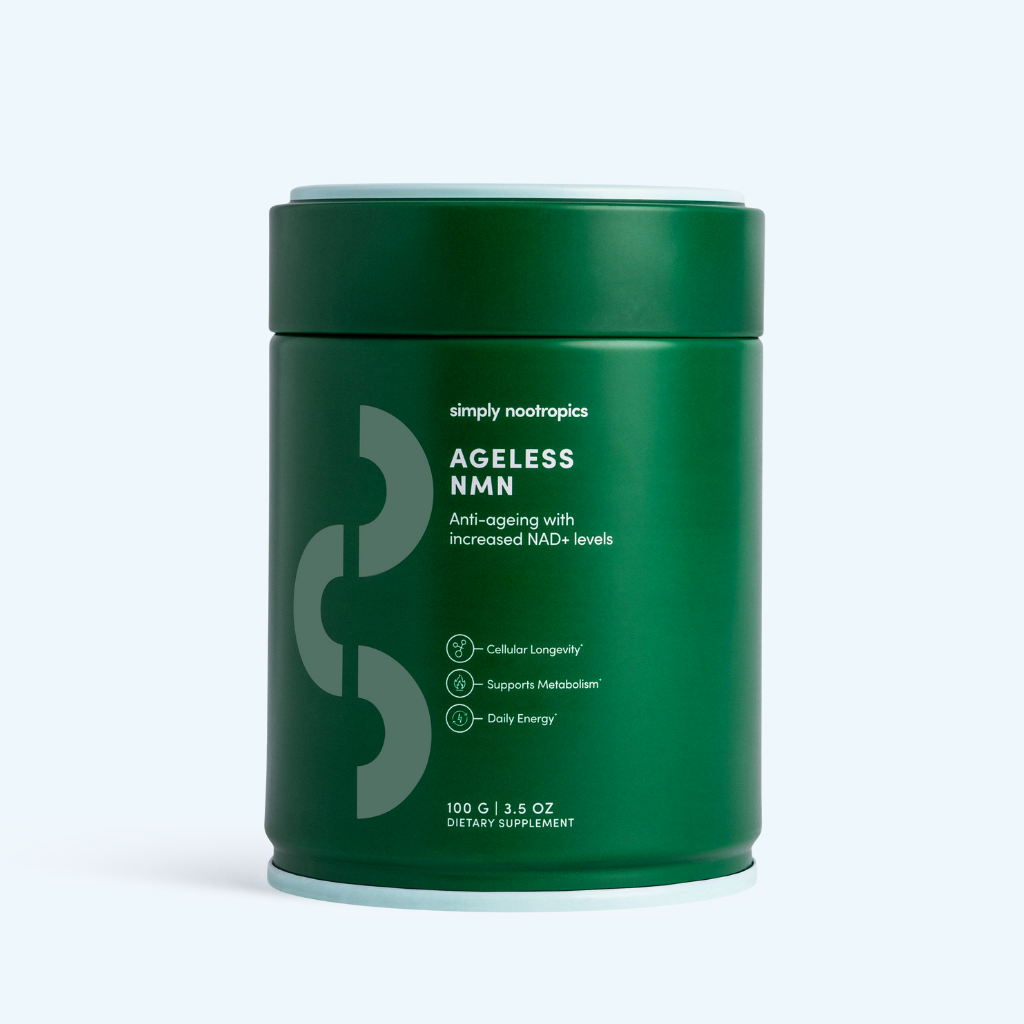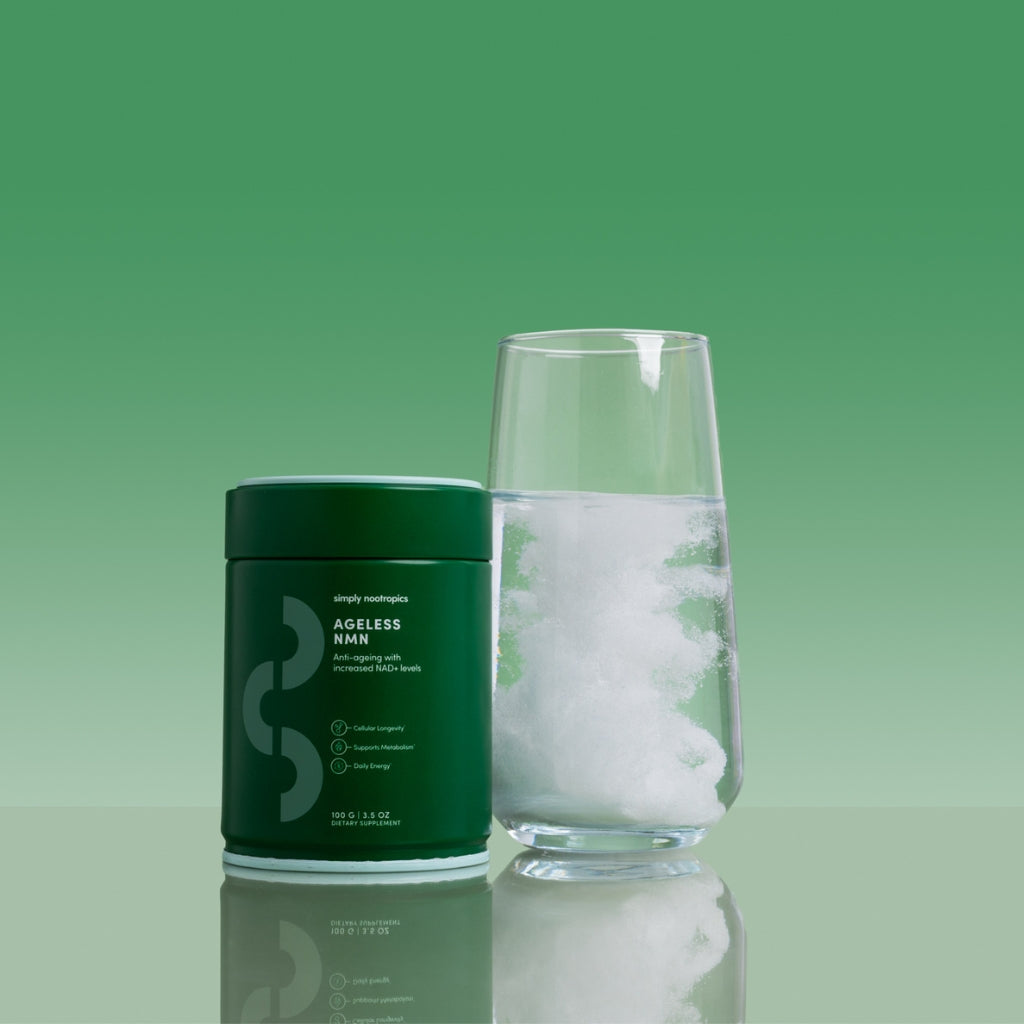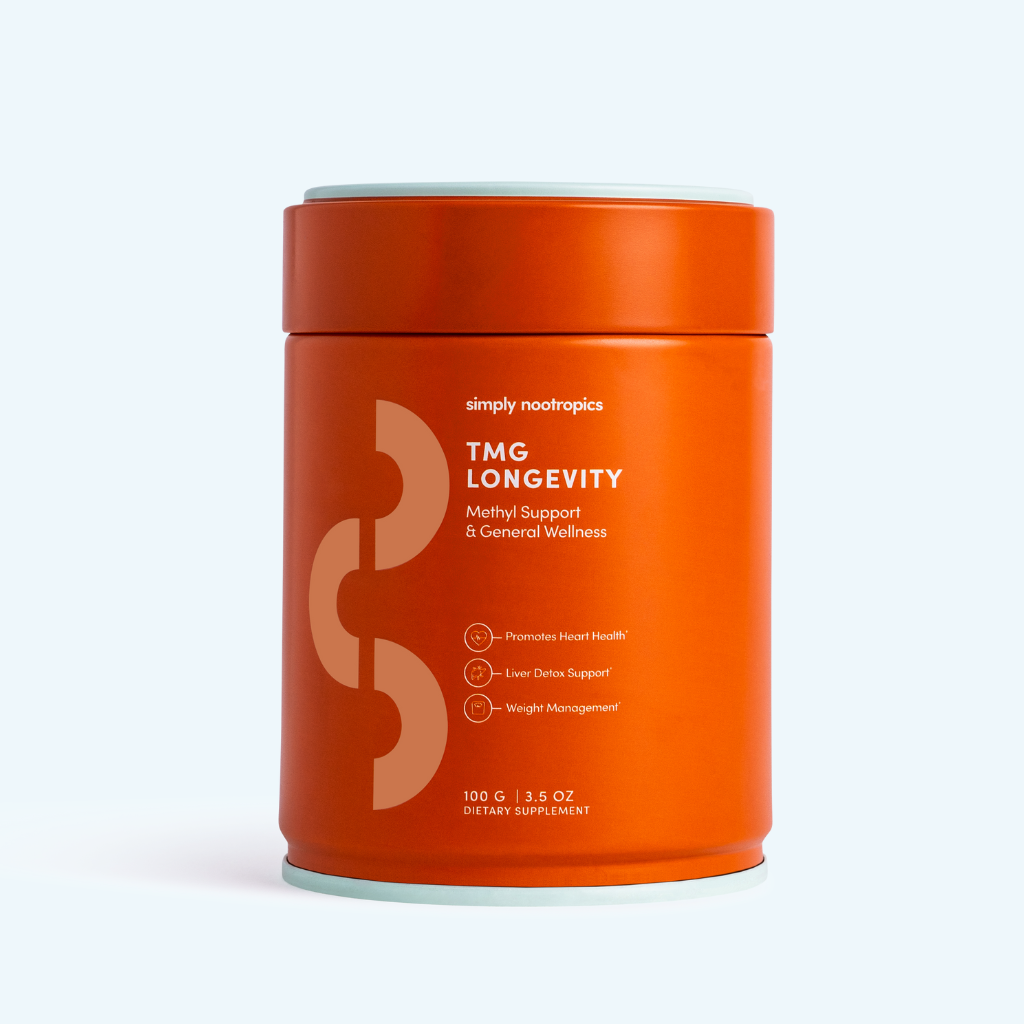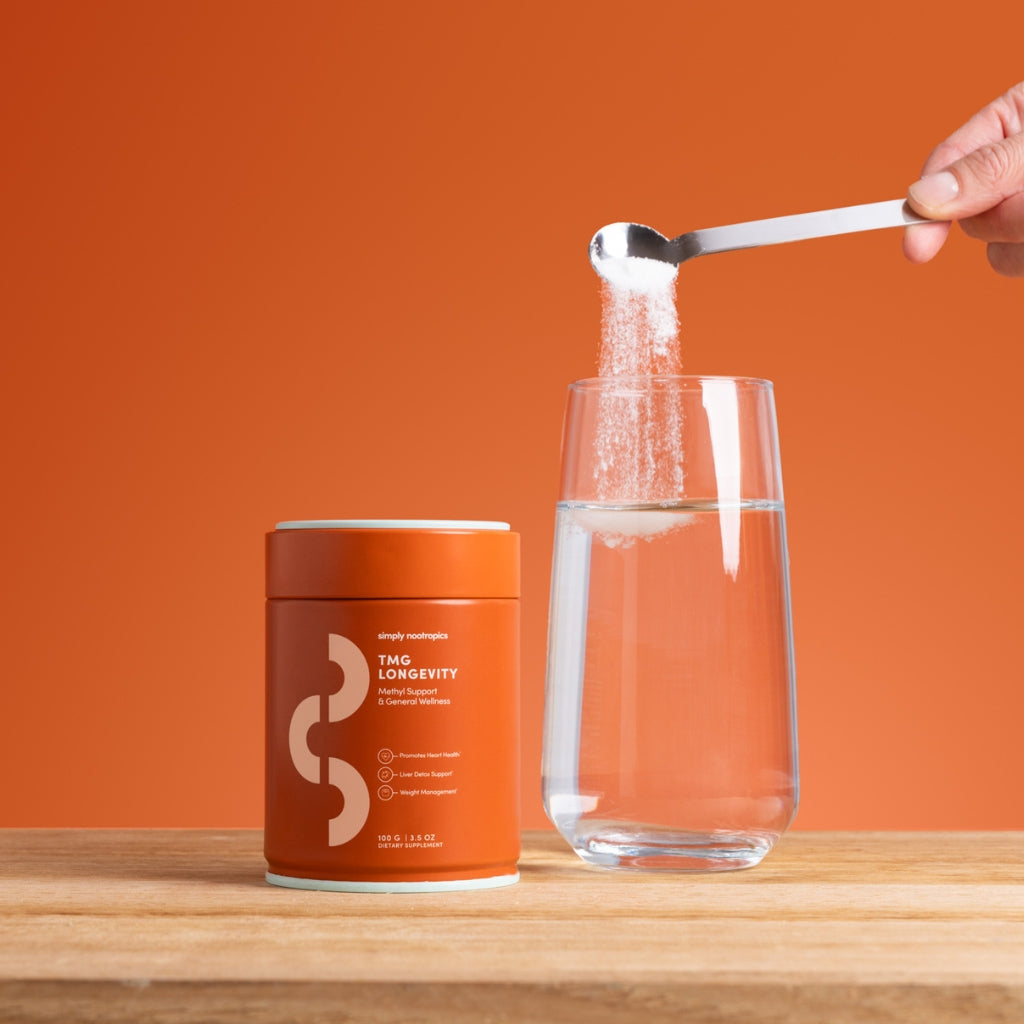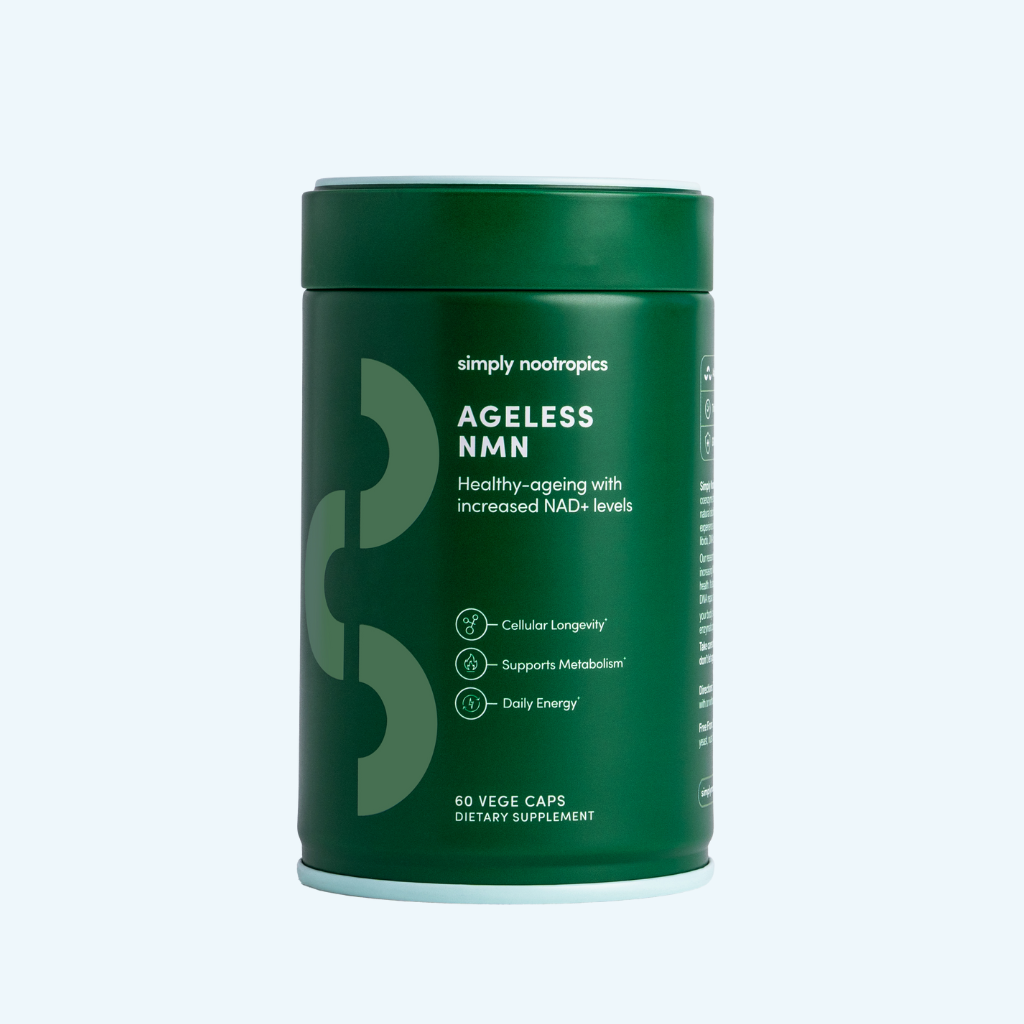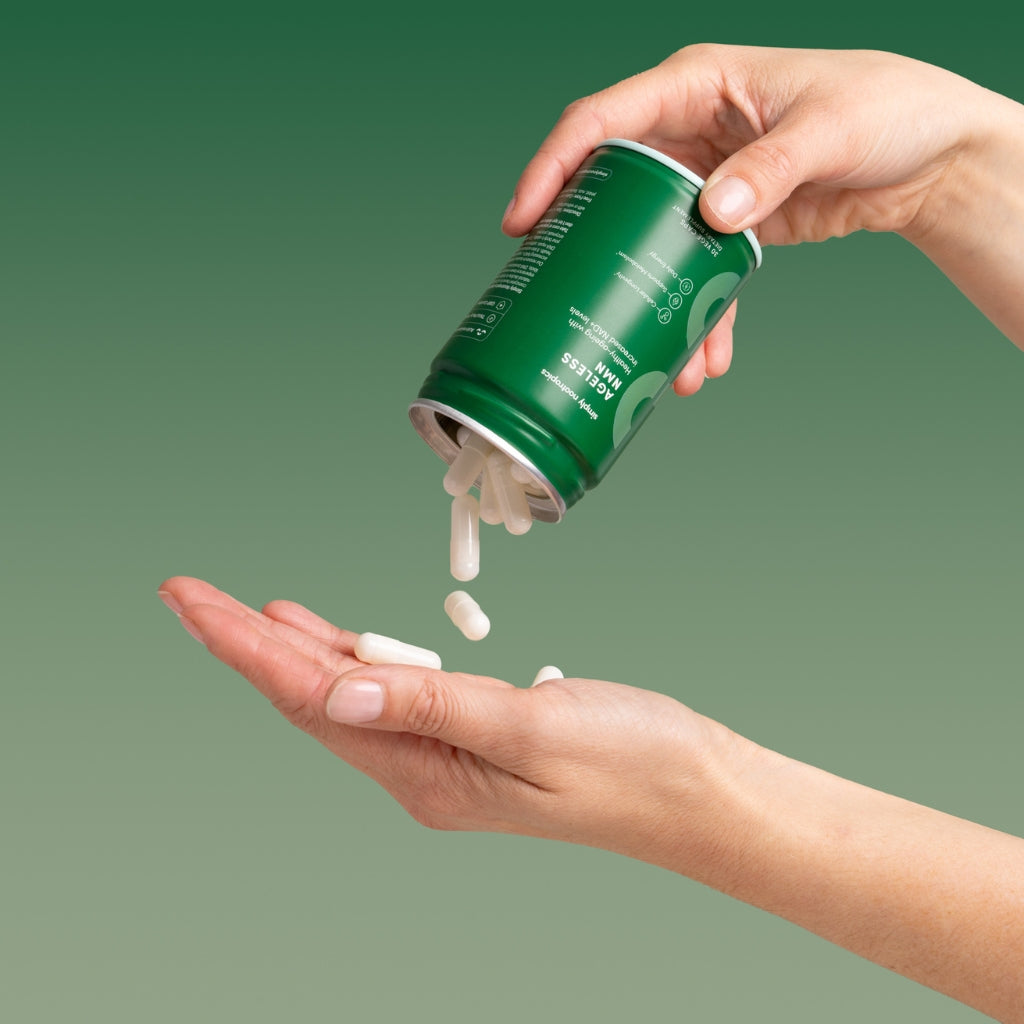The Benefits of Blue Light Glasses during COVID Lockdown
We’re all wisely following the Level 4 health orders to stay at home. That’s the most important thing we can do for our health right now and protect those around us. But did you know your increased exposure to artificial blue light from digital screens and LED bulbs while we’re stuck indoors is eroding your biological clock? Learn more about pandemic screen time and how Simply Nootropics biohacking gear can help you block blue light and reclaim control of your sleep patterns, mood, and energy.
What is blue light, and why is it bad?
It's not all bad, and we'll get there. But let's start with the first part.
The visible light spectrum is a rainbow. At one end, you have red; on the other side, violet. Rays with a red tint have longer wavelengths and less energy. Violet light rays, however, have shorter wavelengths and more energy. Because of this higher energy, violet and blue-violet rays are damaging to the eye. For this reason, these rays (380-455 nm) also are called 'harmful blue light'. Invisible ultraviolet (UV) rays lie just beyond the highest-energy (violet) end of the blue light spectrum. UV rays have shorter wavelengths and more energy than high-energy visible blue light.
White light appears when all wavelengths are present in equal intensities. Artificial light that looks white to the naked eye can have a significant blue component, which exposes our eyes to the more high-energy range of wavelengths from the blue end of the spectrum.
The cornea and lens evolved to protect the light-sensitive retina at the back of the eyeball. But they cannot filter blue light or UV rays effectively. Virtually 100% of high energy visible blue light (or HEV) passes through these structures and reaches the retina. This can cause irreversible damage to the cellular structure of the retina.
While most blue light is from the sun, much of our blue light exposure is now artificially sourced. Screens emit loads of it (laptops, smartphones, tablets, digital devices, and televisions emit blue light).
And that's why you need biohacking gear to combat its harmful effects.
What harm can blue light do?
Blue light contributes to digital eye strain and blurry vision.
Blue light is a form of ultra-violet (UV) radiation. Although it's converted to be within the range our eyes can see, it's still very much capable of harming our skin, eyes and brain when we're exposed to it. Numerous studies confirm that cumulative lifetime exposure to blue light causes photo-oxidation of retinal cells and age-related macular degeneration (AMD). That's right: looking at screen devices is making your eyes old from the inside. It can lead you to need prescription glasses and may even cause eye disease and blindness.
But that's not the worst: it wreaks havoc in your brain.
What does blue light exposure do to the brain?
First off, the natural blue light emitted from the sun is beneficial. It can improve sleep quality, boost alertness, help memory and cognitive function, and lift your mood. The photosensitive cells in the retinas that respond to blue light send signals through multiple regions in the brain responsible for heart rate, body temperature, hormone secretion, gene expression, and stress response. We're hardwired for blue wavelengths to regulate circadian rhythms — our natural waking and sleep patterns.

And that's where the problem lies - in a modern world, watching tv or staring at a computer screen after dark, with fluorescent lightbulbs or LEDs overhead and digital devices in our hands, we're getting more blue light exposure than our brains can handle from artificial sources. When we get blue light at unnatural times, we can't fall asleep right.
Blue light causes massive disruptions to your circadian rhythm.
Blue light suppresses the production of melatonin – a hormone that regulates your sleep-wake cycle – in turn making you feel more alert and wide awake. At the same time, it increases neurotransmitters like serotonin that stimulate mood and brain function. Blue light also inhibits the release of a hormone called prolactin in our body: this chemical tells us when we are too stressed and need to rest.
Regular exposure to unnatural blue light may stimulate the secretion of adrenaline, which is why we might mistakenly feel more alert and perfectly fine after using digital screens at night. You're not; you're actually being tricked by the blue light coming from digital screens.
As Toronto sleep consultant Amanda Jewson describes it: "Ever been to Vegas, look down at your watch and not believe for a second it’s 3 a.m. because you feel 100 per cent? That’s blue light exposure".
Clearly, being exposed to bright blue light at night can throw off both our sleep-wake cycle and elevate our stress levels. When the damage to your circadian rhythm becomes chronic (i.e., your sleep patterns are all out of whack), it is known as circadian misalignment or 'social jet-lag' (SJL).

Source https://www.onepetro.org/conference-paper/SPE-187048-MS
The most interesting effect of the circadian misalignment caused by blue light is the accelerated ageing of cells. It makes nerve cells more prone to damage and increases the oxidising effects of free radicals in the brain. In summary: if you want your brain to function well when you get older, keep away from blue light after sunset and in the nighttime.
How blue light could be affecting you in lockdown.
Limiting screen time is easier said than done in modern life. Even if you try to avoid screens in the evening (my hat's off to you), you are still exposed to blue light from fluorescent lights and LED bulbs every day and night! This is primarily why researchers say that exposure to artificial sources of blue light may be even more pernicious than exposure to the sun.
The intensity of artificial sources - especially LEDs - is too much for our tired eyes. Reaching for your reading glasses more and more? The Vision Council confirms the leading cause of Digital Eye Strain is excessive exposure to blue light resulting from our rising dependency on digital displays.
This is especially the case in COVID lockdown, when staying inside with our phones and screens as our main source of social connection has become the norm.
“The challenge of social isolation is we’re sitting indoors. If you’re not getting enough light during the day and you’re getting too much light at night because you’re on your devices, it’s going to affect your biological clock, which is going to affect your sleep,” says Dr. Shadab Rahman.
Screen time - and correspondingly, the amount of blue light we absorb daily - has surged during the pandemic. A survey in 2020 recorded a 50–70 per cent increase in internet usage, with 50 per cent of that spent engaging on social media. Obviously, there are also positive health and emotional benefits to our increasing reliance on digital and virtual social connectedness during public health crises.
But how do we protect our biological hardware from the environmental shock of being indoors with our blue light-emitting devices as the only contact to the outside world?
Protection from blue light exposure
Wear blue light glasses from Simply Nootropics' biohacking gear if you want to augment your eyes' resistance to the harmful effects of blue light. They look like regular fashionable prescription glasses, with no obvious yellow tint, but have powerful blue light blocking lenses and a sturdy frame material that suits any face shape.
Their benefits are twofold: they combat the negative effects of blue light, and at the same time, enhance your visual acuity for optimal performance.
Do I need these glasses?
Firstly, ask yourself: do I use digital screens for more than 4 hours a day?
If so, start wearing a pair of blue light blocking glasses; they may help you sleep and feel less stressed. (Over 37% of Millennials spend at least 9 hours a day looking at their devices. Are you one?)
And secondly, ask: do I find myself having to squint or shield my eyes when exposed to bright lights at night? If you answered 'yes', you should get these non-prescription glasses; they reduce glare and eye strain, plus they can improve your light-dark adaption so you can see more clearly.
Even if you don't use digital screens (or manage to reduce your usage), you are still likely to be regularly exposed to harmful blue light through fluorescent light bulbs and LEDs. Remember, the phototoxic effects are cumulative.
How do blue light blocker glasses work?
The lenses in a pair of blue light blocking glasses from Simply Nootropics contain pigments specifically designed to absorb the short wavelengths of blue light in your field of vision. When you block blue light, the remaining colours (red, orange, yellow, and green) combine to make yellow.
Your brain will adapt to this and, after a few minutes, you won't notice your vision being yellow or orange-tinted. But the cells in the eye that act as receptors for blue light will start to relax. Our glasses will not entirely eliminate your exposure to blue light but will dramatically reduce it. Because of this filtering, blue light glasses may reduce digital eye strain and eye fatigue.
You also won't be subjected to the contradictory blue light inputs at night that confuse circadian rhythms, inhibit melatonin secretion, and increase corticosteroid production. A simple switch in your colour vision circuit and you'll boost your ability to sleep at night and alertness during daylight.
When you wear glasses with blue light lenses, you can watch TV or enjoy screen time - and get all the advantages of social media and digital connectedness during lockdown - without absorbing harmful amounts of additional blue light. It's the simple hack that allows all the benefits of modern technology and our natural hardwired circadian rhythms to coexist.
What are the benefits of blue light?
Ironically, at the same time as getting too much artificial blue light from devices, we're not getting enough of the natural blue light emitted from the sun while New Zealand is at Level 4.
As said above, the violet light rays in sunlight are essential to set our body’s circadian rhythm for the day. Dr. Charles Czeisler of Harvard Medical School established that daylight is required to keep a person's internal clock aligned with the environment, boosting alertness, helping memory and cognitive function, and elevating mood. And we don't get enough of it stuck indoors.
When we are exposed to beneficial blue light, our body makes a compound called nitric oxide from a molecule called L-arginine in our blood. Nitric oxide is essential for optimal health because it allows blood, nutrients and oxygen to travel throughout the body effectively.
Sunlight is essential to the natural sleep hormone melatonin, which helps maintain a healthy sleep cycle. Blue light is important for many processes, such as vitamin-D production. But we have to get this light from the sun, not phones! The best blue light is natural blue light.
We need sunlight to live. Dr. John Ott coined the term 'mal-illumination' to describe health deficiencies resulting from sunlight deprivation. The shift to increasingly indoor lives deprived us of healthy uv light, and vitamin-D.
Malillumination has only worsened during the COVID crisis, as we stay inside more, especially during lockdowns, resulting in a hidden epidemic of vitamin-D deficiency.
I'm not getting enough daylight during COVID. What else can I do?
Simply Nootropic's Elevate is your perfect source of vitamin-D, including a daily active of 1000IU. Vitamin D is essential to a healthy lifestyle and has been linked with preventing flu and other illnesses.
The potential benefits of taking vitamin-D nootropics during COVID lockdowns are three-fold:
- Its promising role in reducing the severity of respiratory infections.
- Its potential to offset 'mal-illumination' from lack of exposure to healthy levels of uv light (while we all sensibly remain at home and mostly indoors).
- It's a safer source of vitamin B than sunbathing, which makes our skin look older. When you go out in the sun, your body doesn't have a way to store the excess energy (the "free radicals") produced by ultraviolet rays - so it stores them in your skin.
In a world where we spend more time indoors, sitting staring at screens all day, our eyes are exposed to blue light much longer than they were in the past. This causes imbalances that interfere with sleep patterns as well as mood and cognition. Luckily there is an easy hack! Combined with blue light glasses, the active ingredients in Simply Nootropic's Elevate can help reduce the effects of blue light by offsetting imbalances in sun exposure and get us back to our natural circadian rhythms during this global pandemic.
Do blue light glasses really work?
Short answer: no. Not all of them.
Blue light blocking glasses (also known as 'blue blockers', computer glasses, or blue blocker sunglasses) should help you sleep by filtering blue light from artificial sources. But sadly, some cheap ones on the market are no better than reading glasses.
The effects of blue light may be mitigated by the best blue light blocking glasses, which filter blue light from reaching your eyes. The most objective way to know if blue light blocking lenses are effective is to purchase a digital spectrometer and test the lenses.
Otherwise, the discerning customer should purchase from a company they trust to provide the best blue light filtering glasses, like Simply Nootropics. While the verdict isn't out yet on whether blue light glasses are beneficial, there is testimonial evidence from biohackers (including yours truly, who is wearing a pair to write this) who swear by their blue light blocking glasses. Go on, go ahead. Grab a pair for yourself and see the difference.
If you already wear prescription glasses, you can speak with your eye doctor about coatings that can tint your existing clear lenses to let in less blue light. But if you don't need prescription blue light glasses - and you're looking to protect yourself from eyestrain and other adverse effects - we believe the best blue light blocking lenses are found right here.
Simply Nootropics elevates your state of mind with a curated collection of products and gear, scientifically selected based on their nootropic strength and potential for cognitive improvement at affordable prices.
Buy blue light blocking glasses in NZ
Blue light glasses are a great way to protect your eyes from the harmful blue light emitted by screens and devices. Blue blocking lenses may reduce eye strain, headaches, migraines and insomnia caused by exposure to artificial blue light sources.
Simply Nootropics is proud to offer high-quality blue light filtering glasses that can help you sleep better at night while protecting your delicate peepers during COVID lockdowns. You can find these speciality glasses in our online store.
Thanks for reading! For more information on the benefits of Simply Nootropics Elevate, click here. Stay safe during COVID. If you have any questions, you can contact us or leave comments. Subscribe for updates on the best nootropics and biohacking gear to level up your life.
Fast facts:
- Almost all blue light comes from the sun.
- Blue light is visible to the human eye.
- Blue light has the shortest wavelengths and highest energy.
- High energy visible light can be harmful, partly because exposure is mismatched with daylight's natural timing and intensity.
- Sources of blue light include fluorescent light bulbs and LED lights, flat-screen TVs, computer monitors, phones, and tablet screens.
- Blue light at the wrong time of night can disrupt sleep patterns by impacting melatonin and cortisone production.
- We are more exposed to more blue light than ever during COVID restrictions because of lifestyle changes (more devices, less sun).
- The effects of mal-illumination may be offset by active vitamin D - contained in Simply Nootropic's elevate.
- The eyes are an extension of the brain. Light entering the eyes influences brain chemistry and regulates vital circadian rhythms.
- To help your brain reset and reduce glare and eye strain from blue light, you can wear blue light blocking glasses. These non-prescription lenses (computer glasses) are available without needing to see an eye doctor, so you can start to retrain your sleep and reclaim your brain today.


